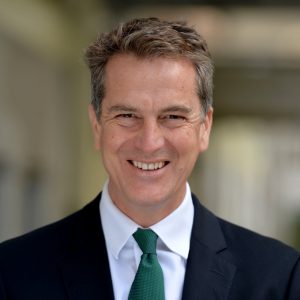Iceland’s banned TV advert, tobacco tumbles, the ‘Word of the Year’ reflecting rising awareness of environmental issues, and the first supermarket aiming to go “plastic-free”. Lori Campbell rounds up the top sustainable stories of the week.
Banned Iceland palm oil ad goes viral
Iceland’s Christmas TV advert highlighting the destruction of rainforests was banned this week for being too political.
The frozen food giant is now urging customers to make the ad – which was spiked before it hit TV screens – go viral. As part of its festive campaign, Iceland inked a deal with Greenpeace to repurpose an animated short film which highlights the destruction of rainforests by palm oil growers.
The 90-second cartoon tells the story of a fictional character called Rang-tan, a critically endangered orangutan whose home is destroyed. Earlier this year, Iceland became the first major UK supermarket to pledge to remove palm oil from its own-brand products.
Tobacco stocks go up in smoke
Two of the biggest tobacco companies in the UK’s FTSE 100 index tumbled in value on Monday (12 November) as reports surfaced that suggest the US Food and Drug Administration is planning to ban menthol cigarettes in America.
The shares of British American Tobacco and Imperial Brands had fallen by nearly 11 per cent and 2 per cent respectively by the close of trading as investors headed for the hills.
Ian Forrest, investment research analyst at The Share Centre, says: “The reports are still rumours and they make it clear it would take some time to draw up a ban. However, they follow the news in October that the FDA is planning to crack down on the growing use of e-cigarettes among young people.”
“Single-use” makes the dictionary
Collins Dictionary has named “single-use” as its word of the year, reflecting rising global awareness of environmental issues. The term refers to disposable products – such as coffee cups, straws and plastic bags – that are made to be used once before being thrown away.
They have been blamed for polluting the world’s oceans and waterways, as highlighted in the second series of David Attenborough’s BBC documentary Blue Planet II. Collins’ lexicographers say use of the word has risen four-fold since 2013 as plastic pollution climbs the political agenda.
Budgens pioneers anti-plastic aisles
Supermarket Budgens is taking action on plastic, with a pledge for all its stores to be plastic-free within three years. This week it became the first British supermarket to create plastic-free zones in its stores, in a bid to reduce single-use plastic waste.
The Thornton’s Budgens store in Camden now stocks 1,700 plastic-free products including bread and meat wrapped in paper, fruit and vegetables encased in Beechwood netting, milk in glass bottles, cheese in clear wax wrap and home compostable food bags.
Campaign group A Plastic Planet helped the company create the zones in just 10 weeks. Founder Andrew Thornton said: “We’re hoping that what we’re doing here will challenge the likes of Sainsbury’s, Tesco and others.”
Guernsey becomes global sustainable hub
Guernsey is helping to lead the agenda on sustainability, after it became one of nine financial centres to take part in the United Nation’s Financial Centres for Sustainability. The new network sees Guernsey join other leading financial centres including London, Frankfurt, Paris and Zurich, as part of a European commitment to sustainable finance.
Guernsey will be committed to supporting ‘green insurance’, which covers any product that reduces or mitigates against climate change.
Seychelles moves to protect oceans with ‘blue bond’
Elsewhere, the Seychelles has launched the world’s first sovereign ‘blue bond’ designed to support sustainable marine and fisheries projects. Proceeds from the bond will help to expand marine-protected areas‚ improve governance of priority fisheries and enable development of the Seychelles’ blue economy.
“We are honoured to be the first nation to pioneer such a novel financing instrument‚” said the country’s vice-president Vincent Meriton. The bond, developed by the World Bank, has so far raised £11.65 million from international investors including Calvert Impact Capital, Nuveen and Prudential.





